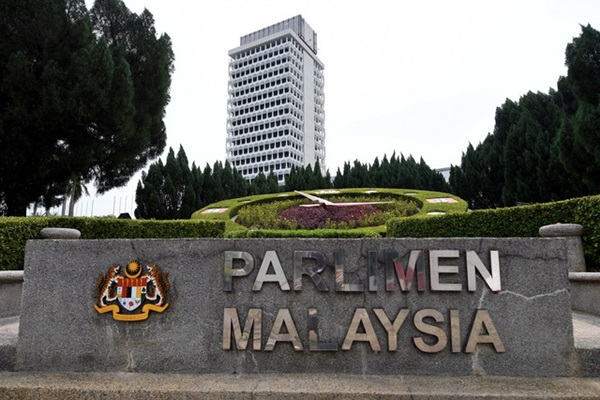File photo of the Parliament Building in Taman Duta. — Bernama Photo
KUALA LUMPUR (Sept 11): The Malaysian Parliament, which turns 62 today, will undergo a transformation, thus elevating its position as the country’s highest legislative body.
Prime Minister Datuk Seri Ismail Sabri Yaakob’s announcement on the transformation of the Parliament and the government’s administration ahead of the Malaysian Parliament’s anniversary is like a ‘gift’ to the country, which is facing various challenges due to the COVID-19 pandemic.
Describing the transformation as offering a positive impact to the country’s political landscape, a political analyst, Prof Dr Sivamurugan Pandian, of Universiti Sains Malaysia, said it would further nurture the parliamentary democracy system in Malaysia.
“It will give a positive impact, not only on parliamentary reforms, but how the parliamentary reforms will also lead to the country’s political reform,” he said.
Seven items were put forward to implement the transformation of the Parliament and the government administration, including the tabling of the tabling the Anti-Hopping Bill, implementing Undi 18 soon and limiting the Prime Minister’s tenure to 10 years.
The federal government is today seen as inclusive when it invites the participation of opposition party members in the National Recovery Council (MPN) to provide views and suggestions for improvement, while the Opposition Leader will be given remuneration and facilities equivalent to a minister.
According to history, the first meeting of the Parliament of the Federation of Malaya was opened by the Yang di-Pertuan Agong Tuanku Abdul Rahman Ibni Almarhum Tuanku Muhammad on Sept 11, 1959. at Dewan Tuanku Abdul Rahman, now known as Malaysia Tourist Information Complex (MATIC).
Now more than a half century old, the Malaysian Parliament should be more mature and the determination to make a transformation in ensuring that it is on par with the Parliament of other Commonwealth countries or in the developed countries is needed.
Sivamurugan is of the view that it is time for Parliament as a legislative body to showcase mature members of the house who are able to argue prudently.
He said the Malaysian Parliament should have a disciplinary committee or enact a code of ethics for MPs to ensure that they do not act excessively, including using abusive and insulting words.
Sivamurugan’s view is shared by Associate Prof Dr Awang Azman Awang Pawi, of Universiti Malaya, who said the MPs should be wise and mature so that the society does not lose respect for the parliamentary institution.
He hoped for more changes that would see the cooperation between the government and the opposition in Parliament for the benefit of the people, as well as for the purpose of a transparent and well -functioning check and balance.
“Any change that involves the commitment of the government and the opposition should be expedited and must be done transparently in order to continue to gain the trust of the community,” he said.
On Sept 7, Minister in the Prime Minister’s Department (Parliament and Law) Datuk Seri Dr Wan Junaidi Tuanku Jaafar expressed commitment to implement the transformation, including to revive or reintroduce the Parliamentary Service Act to give independence to Parliament in line with international standards.
Through the act, it will see the autonomy of Parliament in the administrative aspects of the institution, appointment of its staff, as well as its finances, without being determined by the executive.
Apart from that, there are also proposals to draw up a new Act of Parliament to replace the Houses of Parliament (Privilege and Powers) Act 1952 (Revised 1988) and for amendments to the existing Rules and Standing Orders of the Dewan Rakyat and Dewan Negara.
Prior to this, several transformations had been carried out in Parliament, including the introduction of a Special Chamber, Ministers’ Question Time and shortening the notice for submitting questions requiring oral answers from 14 days to 10 days.
The Pakatan Harapan (PH) government, after winning the 14th General Election, implemented several reforms of the parliamentary institution, such as the setting up of 11 Parliamentary Select Committees to regulate and as a check and balance on the implementation of policies of each ministry.
These select committees included on e Fundamental Liberty and Constitutional Rights, Finance and Economy, and Security.
Also established was the parliamentary caucus on reform and governance to upgrade and improve the Parliamentary institution as an effective check and balance mechanism.
It also appointed an opposition MP as chairman of the Public Accounts Committee (PAC) and the practice is still maintained by the present government. — Bernama


